Rapid changes, economic and political upheaval, and intense pressure created a context of volatility, uncertainty, complexity, and ambiguity (VUCA) in Siemens Healthineers Latin America corporate team.
Facing these challenges, how was it possible to create a 139% increase in the number of highly engaged managers and a 46% increase in engagement scores overall?
This case study reviews outcomes of the program and key ingredients of that the company used to create this success…. starting with a foundation of a commitment to people, and leveraging emotional intelligence.
Managing People Not Problems
Siemens Healthineers leadership team in Brazil recognized that VUCA factors were undermining team performance, that old techniques were not working.
As complexity increases exponentially, people get further behind. The VUCA world outside affects people, which affects performance.
They were, said one team member, “Managing problems instead of managing people.”
The team determined to confront the emotional side of these issues head on through a project with Kronberg, Brazil’s experts in emotional intelligence for business.
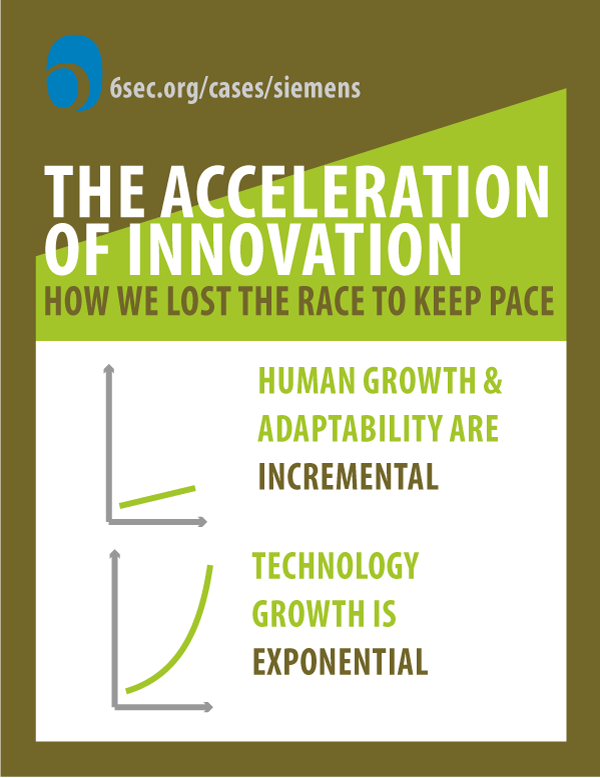
Kronberg utilized personal, leadership, and team assessments from Six Seconds, a global leader in emotional intelligence. The powerful Vital Signs model formed the basis for talking about leader and team performance:
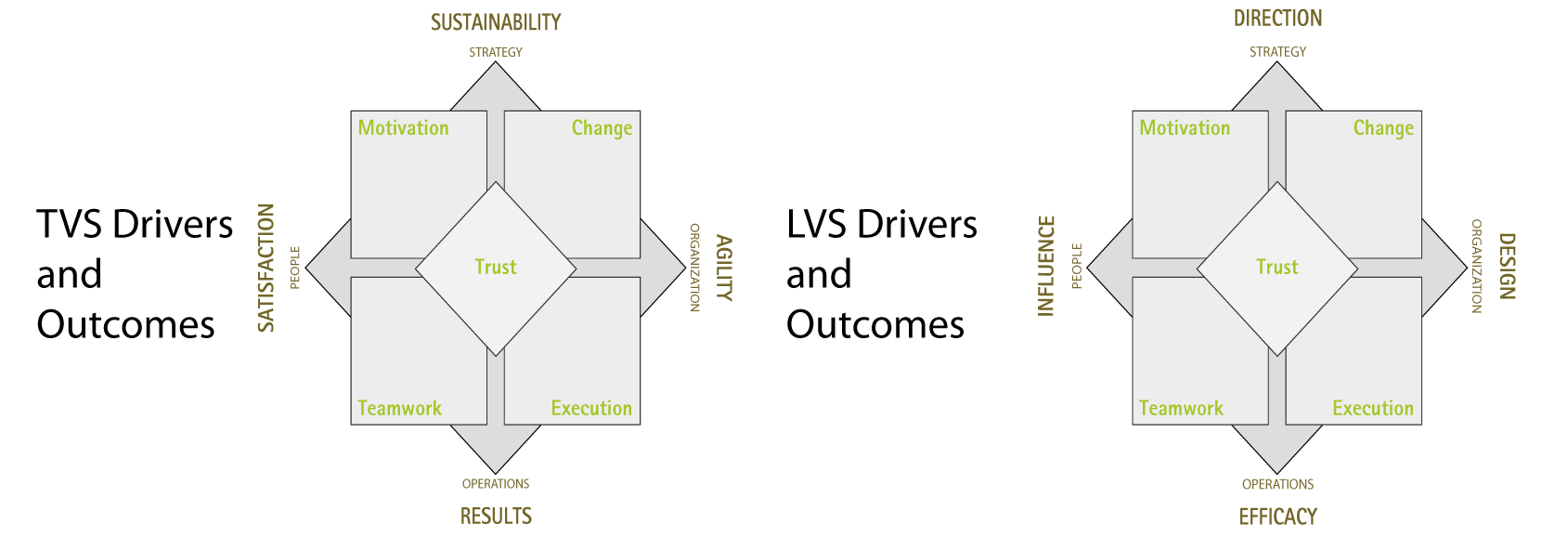
Assessing Progress

The assessments were supplemented by coaching, experiential learning, and retreat-like workshops. Key findings in the full case study include:
- Silos, blame, and distress dominated the volatile work environment.
- Emotional intelligence and trust offered a path forward.
- Building a vital team created the framework for change.
- Core values of belonging, purpose, and teamwork guided the initiative.
- Six Seconds’ assessments yielded actionable data essential to measuring success.
- Open dialogue was critical to creating meaning.
- Developing EQ skills fostered empowerment.
This comprehensive approach increased engagement and dramatically improved key climate driver and outcome scores, as measured by before and after results using an objective assessment of team performance. Here are thepre- and post-program Team Vital Signs (TVS) Engagement Index and percentages:
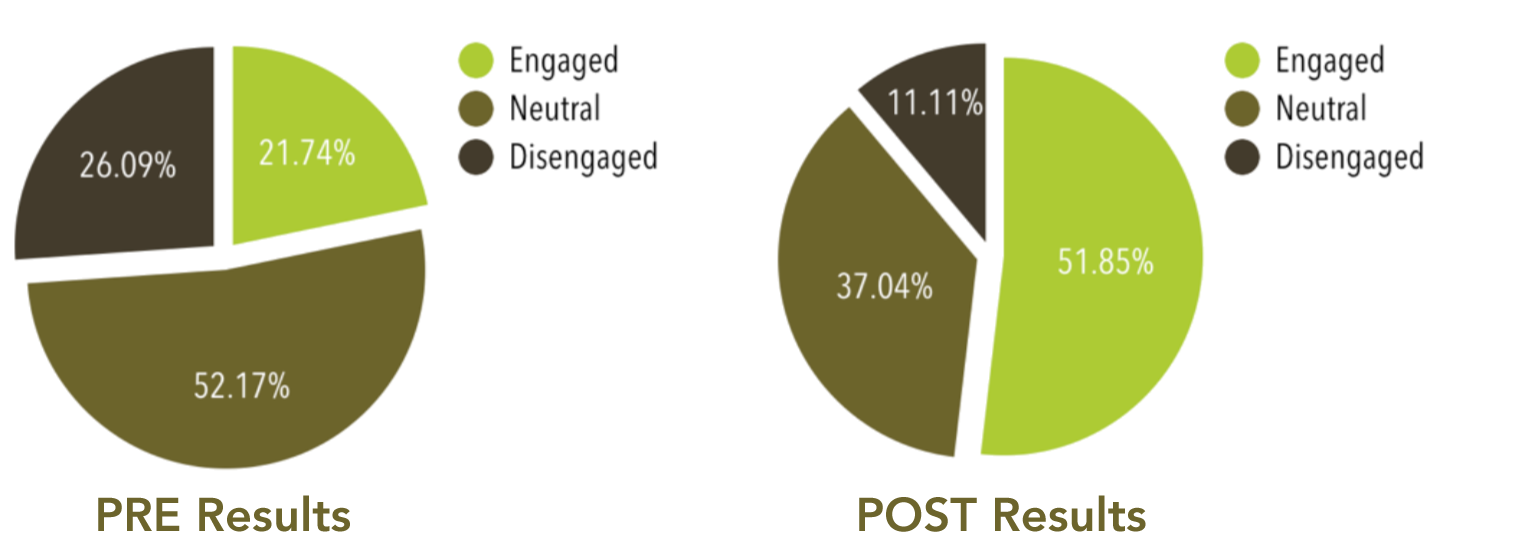
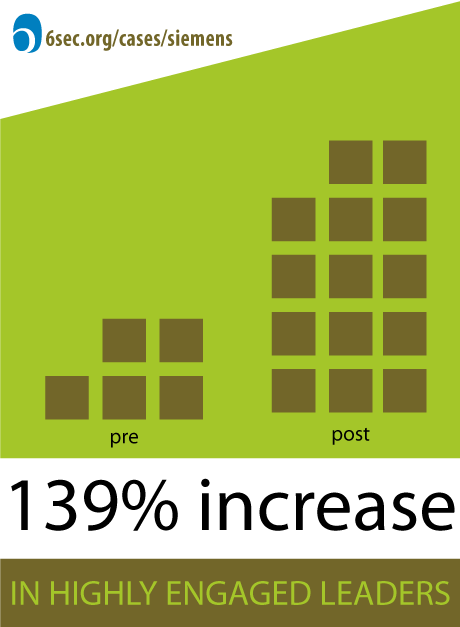
Getting Results
With an overall engagement increase of 46% at the end of the initiative, the future looked brighter for Siemens Healthineers. As one team member said, “I hope the team will continue to improve our EQ level. The impact and results are visible in the organization. I feel that there has been a considerable positive impact in the level of sincerity and trust in the team.”
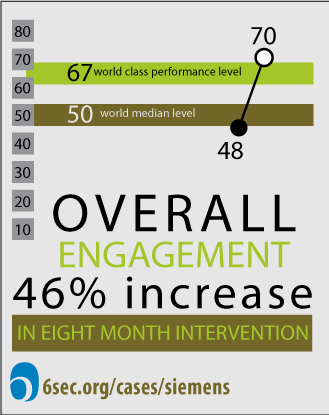
About the Authors
Paul Stillman Ph.D., is Director of Organizational Vitality at Six Seconds. He has over 30 years of experience as a healthcare executive and consultant. Paul leads global efforts to promote Vital Sign, Six Seconds’ suite of organizational assessment tools. He has a Ph.D. in Human and Organizational Systems and is a Life Fellow in the American College of Healthcare Executives. Learn more about these tools at www.6seconds.org/tools
Carlos Aldan De Araujo is a Transformational Master Life Coach, Emotional Intelligence specialist and keynote speaker. He is the CEO and founder of Grupo Kronberg, a Six Seconds’ Preferred Partner, which provides customized business solutions for corporate clients in several industrial segments to generate substantial and sustainable financial impact.
What’s new in emotional intelligence?
How to Thrive in a BANI World: Insights from the World’s Largest Study of Emotional Intelligence
Emotional intelligence is declining just when we need it most. Drawing from the the world’s largest EQ study, this article explores why and how to reverse the trend—with women leading the way toward emotionally intelligent leadership.
Why True Leaders Must Think Like Trainers: How to Use Emotional Intelligence to Excel in a Leadership Role
Discover how Emotional Intelligence and a trainer’s mindset can transform leadership, fostering growth, autonomy, and long-term success.
The Six Seconds Model of Emotional Intelligence: What It Is and How to Use It (+ PDF)
What is emotional intelligence and how do you practice it? Explore the Six Seconds Model of Emotional Intelligence to improve your life and relationships.
Unlocking Performance 2.0: Why Emotional Intelligence Is the Key to Leading in a BANI World
Are we looking for solutions in the right place? What if the key to success isn’t stricter control and efficiency, but more empathy and trust?
AI Fakes It: Good Leaders Keep It Real
We tested top GenAI models’ emotional intelligence—what we found reveals insights that every leader needs to know and will change the way you lead in an AI-powered world.
Plutchik’s Wheel of Emotions: Feelings Wheel
Grow your emotional literacy with Plutchik’s Wheel of Emotions. Then download the free Practicing Emotional Intelligence eBook to go deeper!
- Lessons from Patagonia - May 15, 2018
- How to Lead People in a VUCA World: Siemens Case - April 25, 2018
- Practicing Music: Creating Food for the Soul - March 11, 2018



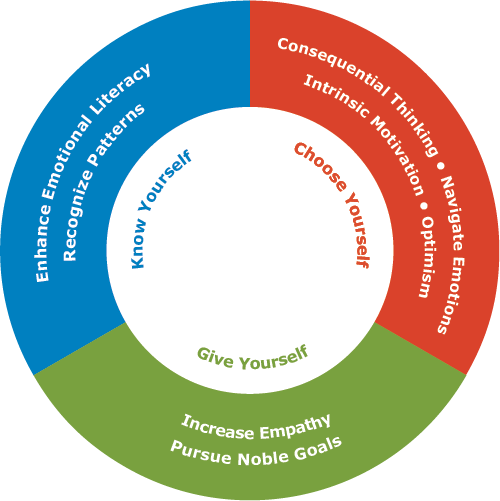



0 Comments